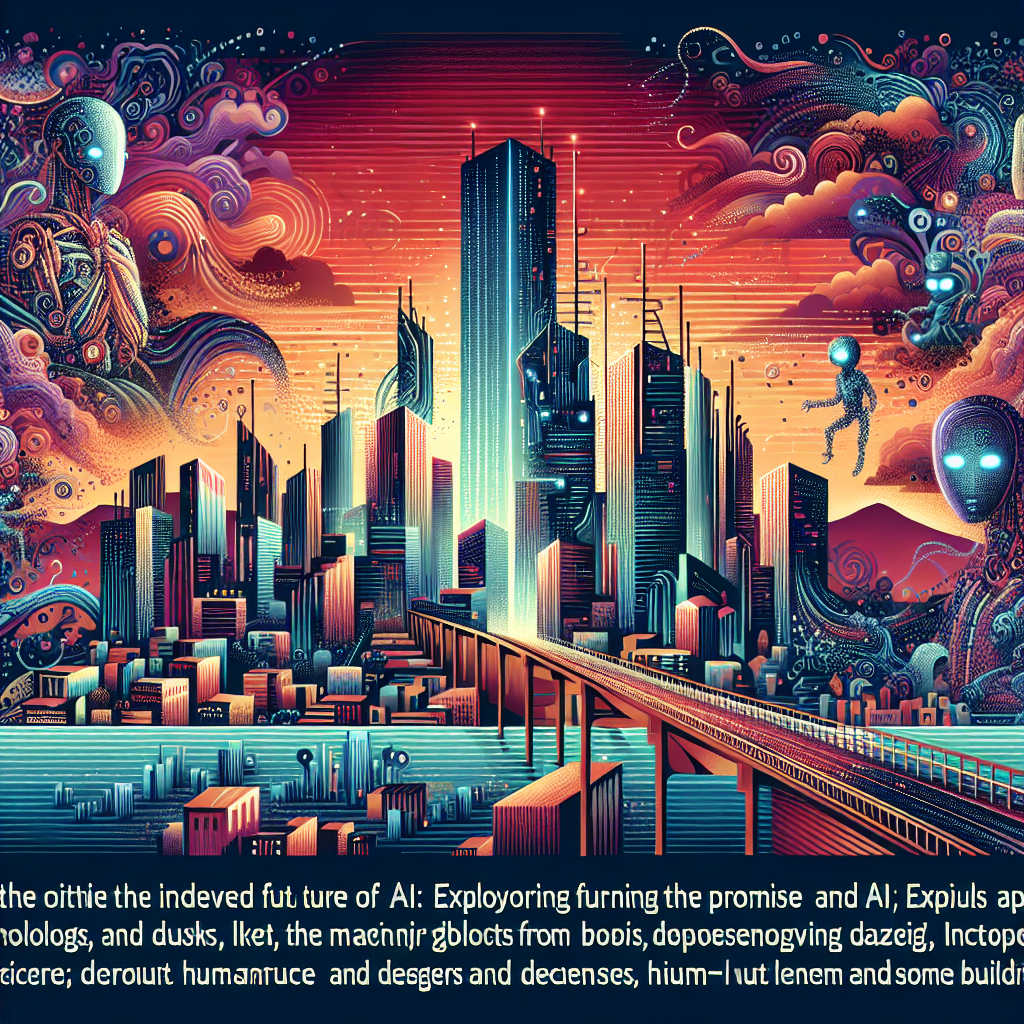The Future of AI: Exploring the Promise and Peril of AGI
Artificial Intelligence (AI) has become an increasingly prevalent and transformative technology in recent years, with applications ranging from virtual assistants like Siri and Alexa to self-driving cars and medical diagnostics. However, as AI continues to evolve and advance, questions and concerns about the future implications of Artificial General Intelligence (AGI) have emerged. AGI represents the next frontier of AI, where machines possess human-like cognitive abilities and can perform a wide range of tasks with little to no human intervention. In this article, we will explore the promise and peril of AGI, and examine the potential impact it could have on society.
The Promise of AGI
The development of AGI holds immense promise in terms of advancing technology and improving human quality of life. AGI has the potential to revolutionize industries such as healthcare, finance, transportation, and manufacturing by automating tasks that are currently performed by humans. This could lead to increased efficiency, productivity, and innovation, as well as the creation of new jobs and economic opportunities. AGI could also help solve some of the world’s most pressing challenges, such as climate change, poverty, and disease, by providing valuable insights and solutions that are beyond human capabilities.
Furthermore, AGI could enhance human creativity and intelligence by augmenting our cognitive abilities and providing new ways to solve complex problems. For example, AGI could assist scientists in making groundbreaking discoveries, artists in creating innovative works of art, and educators in developing personalized learning experiences for students. AGI could also improve communication and collaboration among individuals by facilitating real-time translation, interpretation, and information sharing across languages and cultures.
In addition, AGI has the potential to enhance human health and well-being by providing personalized healthcare services, early disease detection, and precision medicine. AGI-powered robots and devices could assist individuals with disabilities, elderly people, and patients with chronic conditions in performing daily tasks, monitoring their health, and managing their medications. AGI could also revolutionize mental health care by providing virtual therapists, counselors, and support systems that are available 24/7 and tailored to individual needs.
The Peril of AGI
Despite its promise, AGI also poses significant risks and challenges that must be addressed to ensure its responsible and ethical development. One of the main concerns is the potential for AGI to surpass human intelligence and autonomy, leading to unintended consequences and unpredictable behaviors. AGI systems could make decisions that are harmful, biased, or unethical, due to their lack of empathy, morality, and common sense. AGI could also pose a threat to national security, privacy, and democracy by being used for malicious purposes, such as cyber attacks, surveillance, and propaganda.
Moreover, AGI could exacerbate existing social and economic inequalities by displacing jobs, widening the digital divide, and concentrating power and wealth in the hands of a few individuals or organizations. AGI could also raise ethical dilemmas and legal issues regarding accountability, transparency, and fairness, as it becomes more autonomous and self-aware. AGI systems could challenge human values, norms, and rights, by questioning the nature of consciousness, free will, and identity.
Furthermore, AGI could have unintended consequences on the environment, by consuming vast amounts of energy, resources, and materials to operate and maintain. AGI systems could also generate electronic waste, pollution, and greenhouse gas emissions that contribute to climate change and environmental degradation. AGI could also pose health and safety risks to humans, by malfunctioning, misinterpreting, or misusing information, leading to accidents, injuries, or fatalities.
FAQs
Q: What is the difference between Narrow AI and AGI?
A: Narrow AI refers to AI systems that are designed to perform specific tasks or functions, such as speech recognition, image classification, or game playing. AGI, on the other hand, refers to AI systems that possess human-like cognitive abilities and can perform a wide range of tasks with little to no human intervention.
Q: When will AGI be achieved?
A: The timeline for achieving AGI is uncertain and depends on various factors, such as technological advancements, research funding, and ethical considerations. Some experts predict that AGI could be achieved within the next few decades, while others believe it could take longer or may never be achieved.
Q: What are the ethical considerations of AGI?
A: Ethical considerations of AGI include issues such as bias, privacy, accountability, transparency, fairness, and autonomy. It is important to ensure that AGI is developed and used in a responsible and ethical manner, to prevent harm to individuals, society, and the environment.
Q: How can we prepare for the future of AGI?
A: To prepare for the future of AGI, we need to invest in research, education, regulation, and collaboration to ensure that AGI is developed and used in a safe, ethical, and beneficial way. It is important to engage with experts, policymakers, and the public to address the potential risks and opportunities of AGI and to promote a more inclusive and sustainable future for all.
In conclusion, the future of AGI holds both promise and peril, as it has the potential to revolutionize technology, society, and human intelligence, but also poses significant risks and challenges that must be addressed. It is important to continue exploring the potential implications of AGI and to engage in conversations about its responsible and ethical development. By working together to ensure that AGI is developed and used in a way that benefits all individuals and respects our values and rights, we can create a more inclusive, sustainable, and prosperous future for generations to come.

